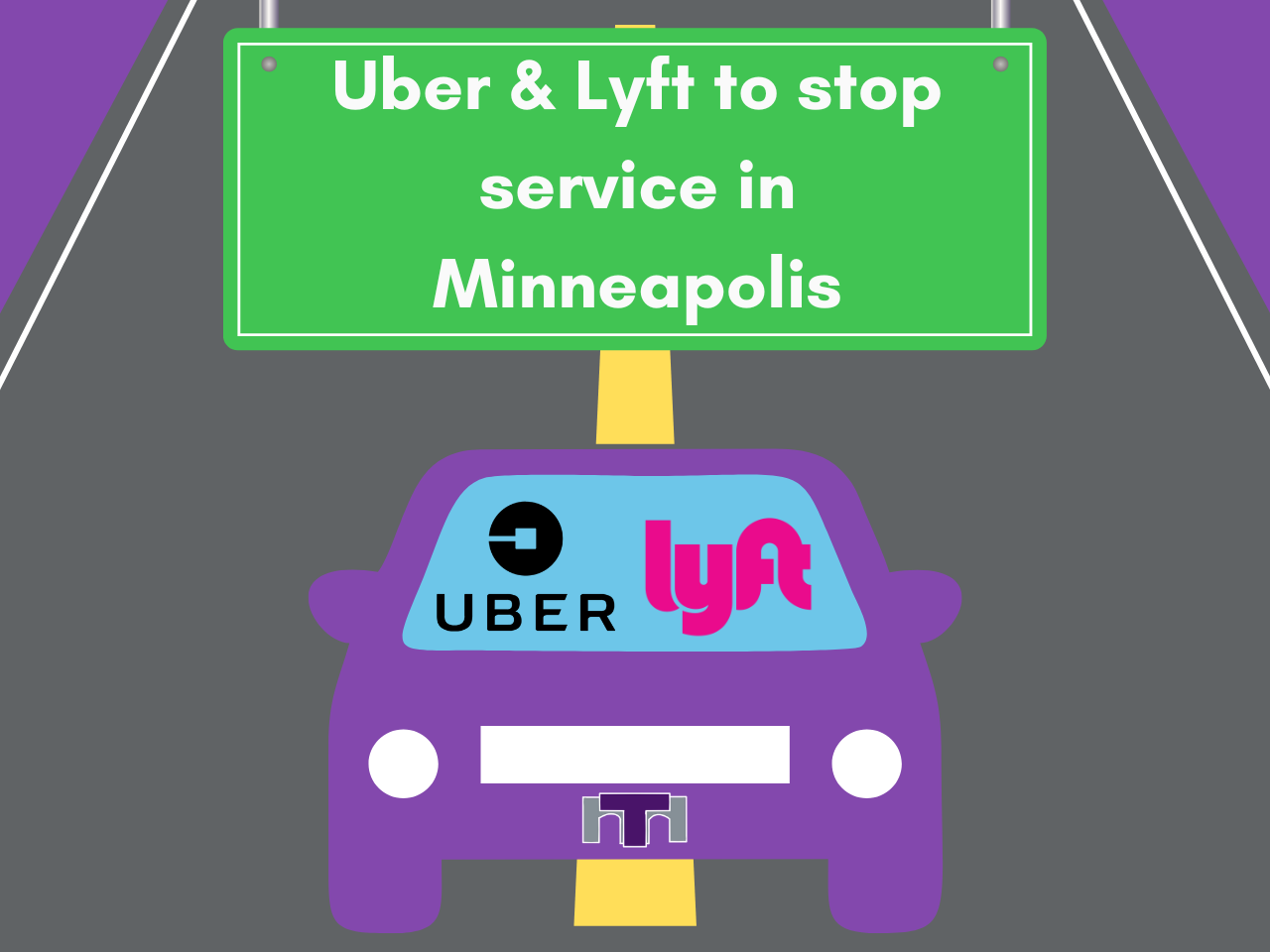
Getting around the Twin Cities could become more difficult this summer after ridesharing apps Uber and Lyft have threatened to cease operations in the area over a Minneapolis city ordinance set to raise the minimum wage for rideshare workers.
Uber and Lyft’s reasoning for leaving Minneapolis is due to a city ordinance passed by the Minneapolis City Council that is set to raise the minimum wage for rideshare workers to match the city’s standard minimum wage of $15.57.
Sophomore Libby Olson said she is worried about what the future holds regarding transportation safety.
“Besides a potential for less congested roads after a big event, there aren’t many benefits I can find for less ridesharing. I think especially with the cities being such a popular spot to go out to get a bite and a drink, Uber and Lyft help with avoiding drunk drivers in the cities,” Olson said.
Under the new ordinance, Lyft would leave Minneapolis in July. According to a statement by Lyft, the app would still operate in St. Paul.
The same cannot be expected for Uber, after its representatives issued an email to its users explaining Uber’s future in the entire metro area is set to expire.
The ordinance, which was supposed to take effect on May 1, was pushed back to July 1 by the Minneapolis City Council. This was done to create ample time for new ride-sharing apps to get licensed and legally ready to operate in Minneapolis, while also giving Minnesota lawmakers time to pass state-wide rules on all rideshare drivers’ pay.
“While this delay is a positive development, in the coming weeks we will continue to work with state leaders on a permanent statewide solution that raises driver pay, protects driver flexibility, and keeps rideshare affordable,” Uber wrote in the same email.
The change of limited to no ridesharing companies will have an inevitable impact on students at St. Thomas. In a poll posted on TommieMedia’s Instagram story, out of 171 users who answered the question, “Are you a University of St. Thomas student who uses Uber or Lyft?” 91% answered “yes.”
“I will definitely feel more contained to campus (if Uber and Lyft Depart),” Olson said. “We live in the cities and I would love to be able to explore it.”
Some students are also worried about the safety and accessibility of the light rail and bus systems that run throughout St. Paul and Minneapolis as an Uber or Lyft substitute.
“I don’t feel comfortable riding public transport like the bus or light rail, especially alone … the lack of ease will likely make me opt out of using that kind of transportation anytime soon,” Olson said.
St. Thomas senior Yunyue Zhang commutes to campus almost daily for class and worries about accessibility issues for students who travel back and forth to campus.
“Assuming that I will still be here for the next semester, I won’t be able to get to school easily since I can only take the bus and walk on my own to school. Because I’m not living on campus, as long as I have classes on that day, I will need an Uber ride,” Zhang said.
The prospective removal of Uber and Lyft in the metro stems from the rideshare companies’ unwillingness to pay the drivers an equivalent to Minnesota’s minimum wage.
In an email to users regarding the potential halt, Lyft said that the ordinance and city’s rate “would make rides on the Lyft platform unaffordable for the majority of Minneapolis residents.”
Zhang said that between his seven to nine rides to and from school a week, he spends around fifty dollars on ride-share transportation.
Diana Karardal, St. Thomas director of transportation and parking services, said that if Uber and Lyft leave the area, the department wouldn’t expect to see an increase in students applying for parking.
“I would never rule out the possibility, but I don’t anticipate that it would change things significantly. Students who need to travel off campus for doctor appointments or other medical/disability needs have a route for getting resident parking permits.” Kaardal said.
Students might see the most impact in their social life, according to Kaardal.
“I think the greatest impact of the loss of ride-share services would be seen with students’ transportation after drinking,” Kaardal said.
Livy Dunlap can be reached at dunl3109@stthomas.edu.
